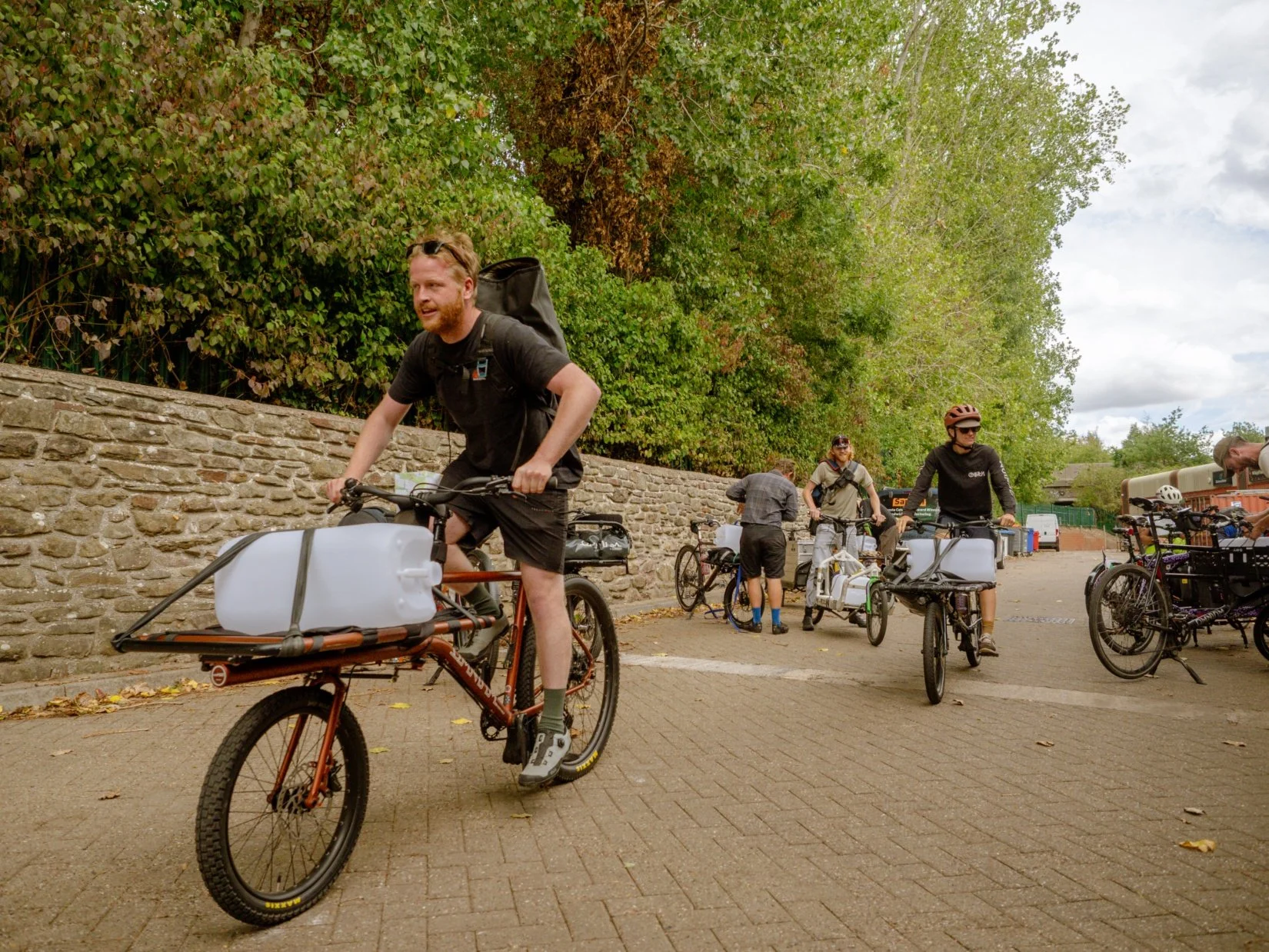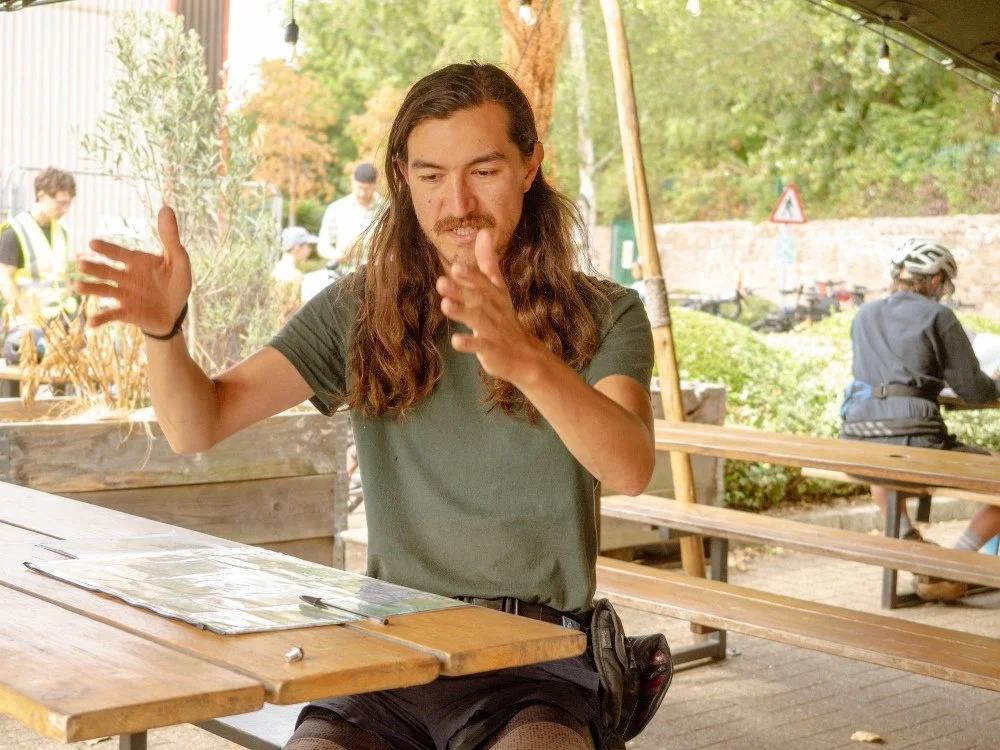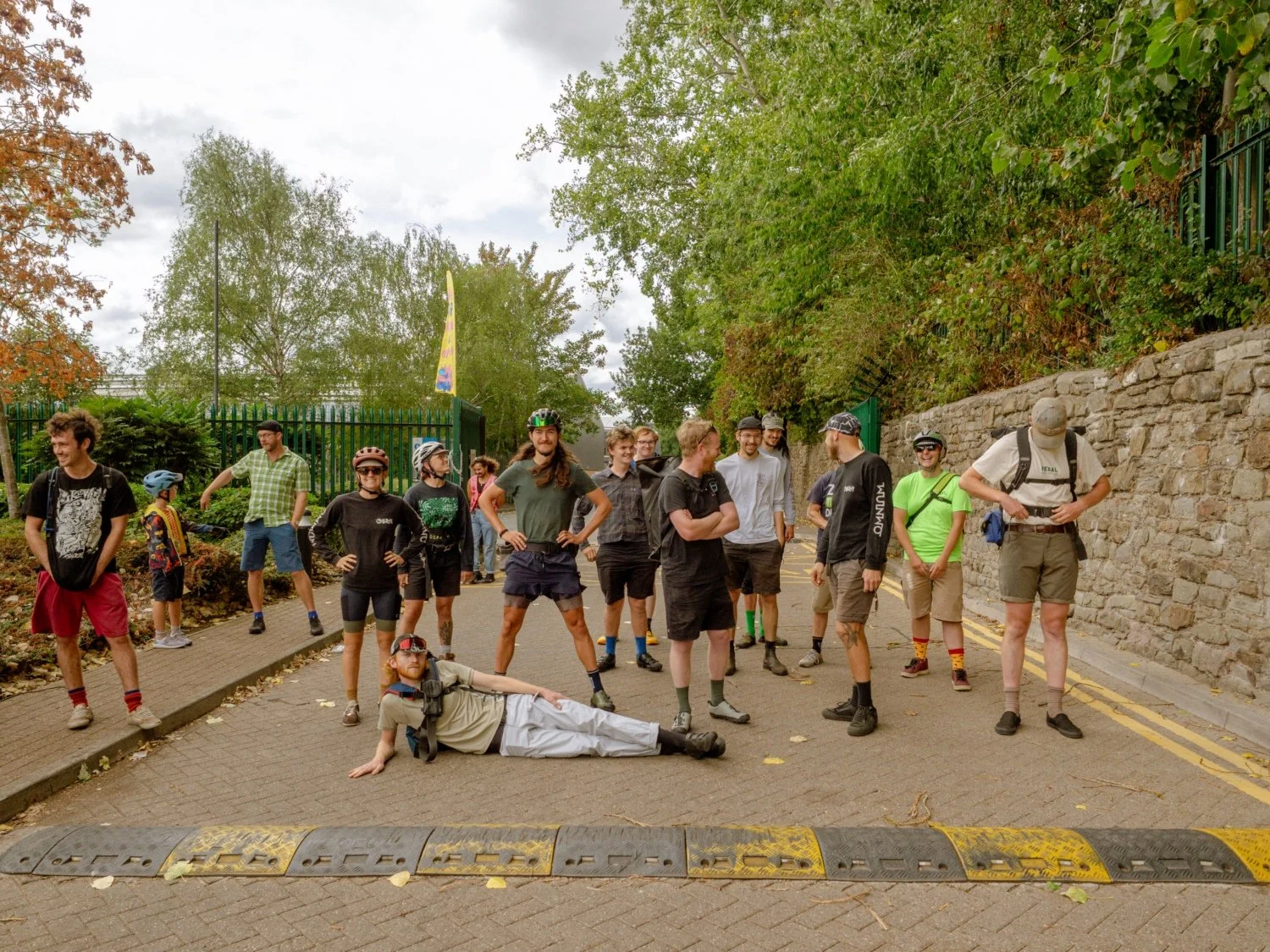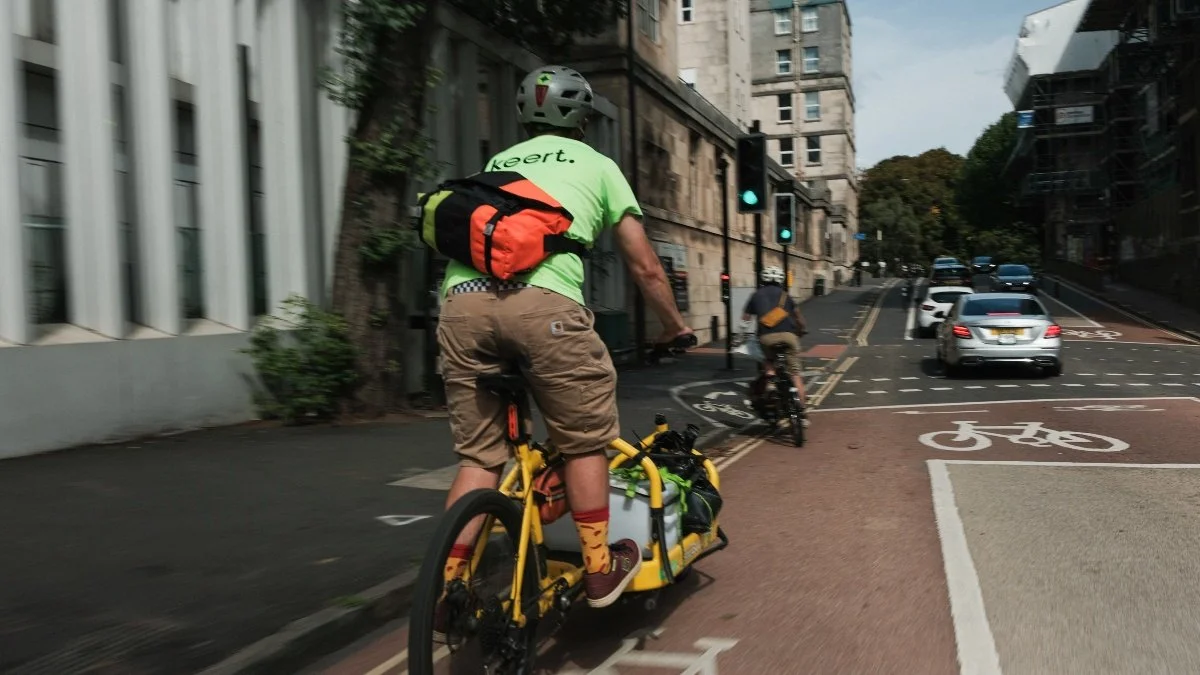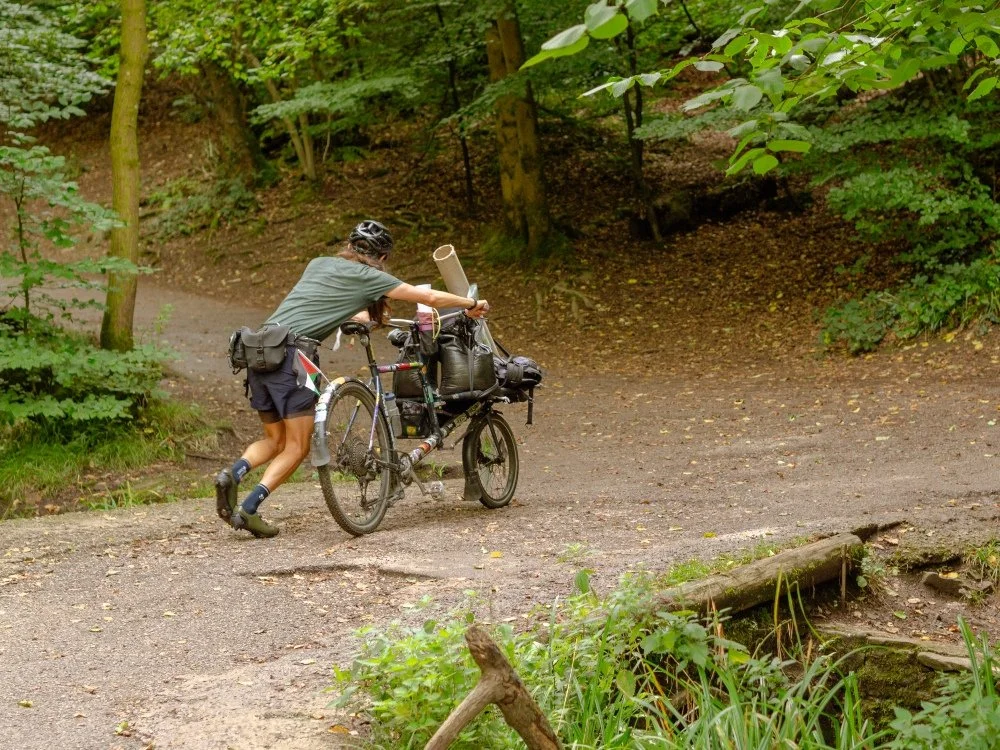Cargo Bike Chaos at the Bristol Disaster Relief Trials
Photos by Tad Jiunn and Twoevstops
The year is 2035. Global warming has pushed the world into its most catastrophic crisis yet. Rising sea levels have submerged coastlines, and extreme weather patterns have brought floods and storms to cities everywhere… Bristol, once a vibrant and thriving community, has become a disaster zone. Inundated by relentless rains and rising waters, the city’s infrastructure is crumbling. Roads are washed out, traditional transport is down, and survival has become a race against time.
Not your average bike race, this is the scenario organisers of the the Bristol Disaster Relief Trials ask participants to face. Volunteering on one of the checkpoints our own Chris got to play a small role in bringing the chaos to life.
I’d never heard of the Disaster Relief Trials but when some pals – advocates for the utility of riding particularly long bikes – mentioned they were putting on some kind of cargo bike alley cat, just round the corner from my house, I was dead keen to get involved.
Part emergency drill, part race, part community celebration, the Disaster Relief Trials is a cargo bike competition designed to simulate a disaster relief supply run where riders navigate a course simulating post-disaster conditions — blocked roads, fallen bridges, disrupted communications, and urgent supply needs.
Founded initially by Mike Cobb in Portland, the events draw a mix of bike messengers and emergency-response enthusiasts for a celebration of community resilience seeing friends get together, play bikes and drink beer. Organised by Rob Byrne with the help of the Pedal Collective crew, Really Useful Bikes and Velocious and supported by a handful of disaster responders from RE:ACT, September 2025 saw Bristol host the first ever Disaster Relief Trials to take place outside of the US.
Bristol DRT
At about 10:30am, outside the Left Handed Giant taproom, riders were handed a paper map and five checkpoints to reach. No GPS, no phones. Just a city to navigate and half an hour to forge a plan.
Groups formed quietly across the car park, maps spread out, plans whispered. It would be up to them exactly how they got to each checkpoint and in which order they hit them, challenged with tasks along the way they’d pick up and carry sandbags, water, delicate breadsticks, and a long cardboard tube representing vital communications equipment.
At this point, I ducked out to make it to the communications checkpoint at the highest point of the course, the cities iconic but somewhat battered old BT Tower up on Stoke Park Estate, where I’d be spending the rest of the day along with Lewin – a strictly pedal-powered plumber who swapped out their van for a cargo bike – and two from the RE:ACT team.
With three categories, non-supported, e-assist and family, the riders lined-up in their respective waves, their varying levels of competitive endeavour clear to see. When the buzzer sounded a running start saw the riders race to grab an empty 25-litre water vessel each – sans lid – strap it to their bikes and head out onto the streets of Bristol.
It wasn’t long before the first rider was through, Kit – who spends many of his days navigating the city delivering his coffee roast – on his e-powered Bullitt. His local knowledge making the difference as he quickly gathered his ‘communications apparatus’ and got on his way.
Over the next few hours riders on various rigs arrived in drips and drabs with an obvious correlation between their routing and order of cargo collection and their physical shape and happiness. Several clearly regretting collecting sand bags and filling their water containers ahead of arrival.
Unsurprisingly perhaps, the last riders we saw were the out-of-towners who arrived almost back to back, both having made critical routing errors, not quite understanding the nuances of a city built on hills and critically for the Paradise Cycles crew – who’d made the trip from London – the Avon Gorge.
As the last of the riders were through our checkpoint, we headed back to LHG to see the last few arrive at the finish, where perhaps one of the most challenging elements still remained. To the cheers of those who’d already completed the route, riders had to lift their bikes and cargo over a final hurdle, built from scaffold pole. Pints in hand, everyone pitched in, hauling trailers, bikes, and awkward cargo. A familiar blend of chaos and collaboration.
With the full roster of riders back and now firmly trauma-bonded by their experiences, the taproom was alive with chatter and back-slapping as well as the opportunity to fawn over and test out each other’s rigs. Shout out again to the Paradise crew who not only bought along a full range of Omnium cargo bikes but also their Sentient Works full suspension cargo bike. I don’t think any of us left without getting at least a lap of the car park on that thing!
Ultimately, the Bristol Disaster Relief Trials did exactly what Rob hoped it would, serving as a timely reminder that long bikes are more than just eco-friendly transport — they’re versatile, reliable tools that could and perhaps should sit at the heart of our communities. In crisis or in daily life. And it tuns out cutting through traffic and across rough trails, hauling shit across the city and drinking beers together, is a killer way to do it.

